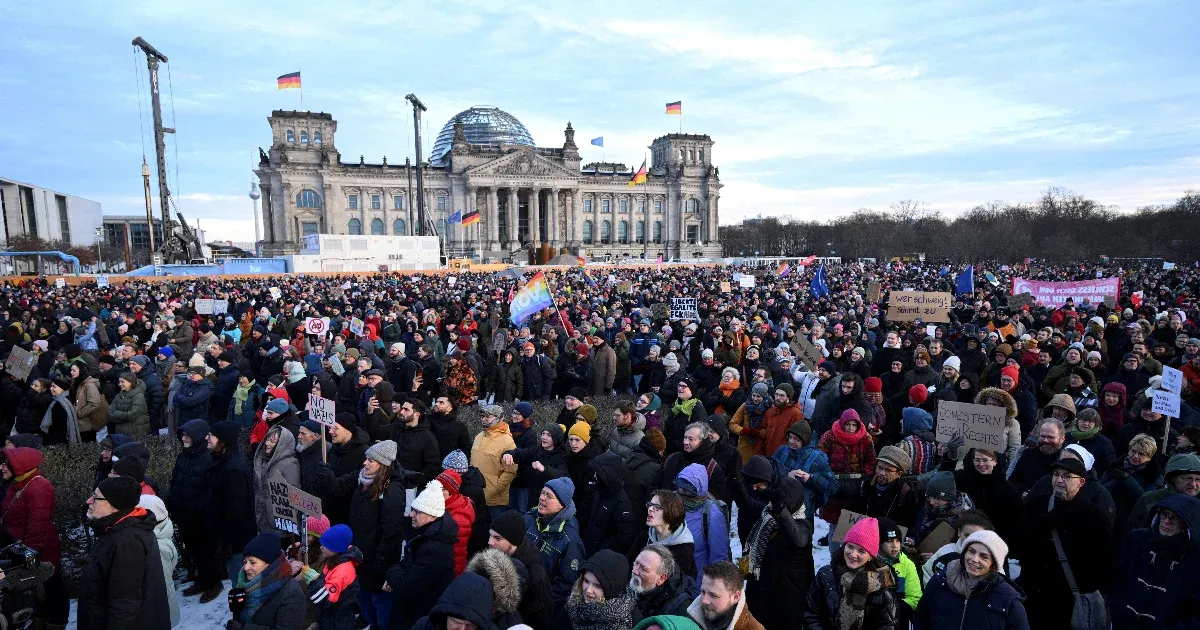At least one hundred thousand people took to the streets of German cities again on Sunday to protest against the right-wing parliamentary party Alternative for Germany (AFD) and its xenophobic and anti-Semitic stance.
a Frankfurter Allgemeine Zeitung The FAZ wrote in its constantly updated report that according to the police, at least 60,000 people gathered in Berlin's government district, but their number could reach a hundred thousand. The size of the crowd is clearly demonstrated by the authorities' continued expansion of the area designated for the demonstration.
More than 100,000 people also demonstrated against the AfD in North Rhine-Westphalia over the weekend. In Cologne, Dortmund, Bonn, Recklinghausen, Bochum and other cities, thousands, and often tens of thousands, took to the streets together. In Munich, police reported at least 80,000 demonstrators, while organizers reported 250,000 demonstrators.
The event in Munich had to be stopped due to a much larger crowd than expected.
According to the police, it was not possible to guarantee the safety of the participants due to the large number of people present. Organizers originally expected 25,000 participants. In the city of Saarbrücken, nearly 12,000 people participated in a march “against fascism, populism and the far right.” In Bremen, the number of demonstrators was estimated at 35-40 thousand. A similar movement was also announced on Sunday in the cities of Cottbus, Dresden and Chemnitz.
According to the FAZ report, Federal President Frank-Walter Steinmeier called on all democrats in Germany to form an alliance for democracy. According to Steinmeier, it is encouraging that hundreds of thousands took to the streets against right-wing extremism over the weekend. He added, “The demonstrators are defending our republic and our constitution against its enemies. The president said in his video speech: “They will protect our humanity.” Chancellor Olaf Scholz also supported the demonstrations that have been ongoing for days. He said earlier that “right-wing extremists are attacking our democracy.”
The wave of protests was sparked by media reports that a far-right meeting was held in Germany last November, attended by representatives of the AfD, where the deportation of millions of migrants was discussed. At the meeting in Potsdam, politicians from the Alternative for Germany party and the conservative Christian Democratic Union (CDU) spoke about bringing back migration.
Incidentally, the AfD is currently the second most popular party in Germany, and we wrote about its rise in detail here. Why banning the party would be a big risk, both from a legal and political standpoint, we explained in detail in this article.












































